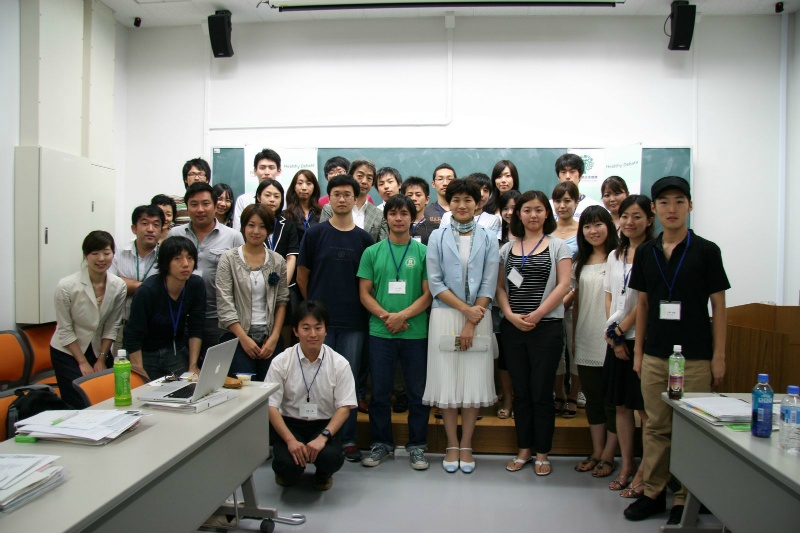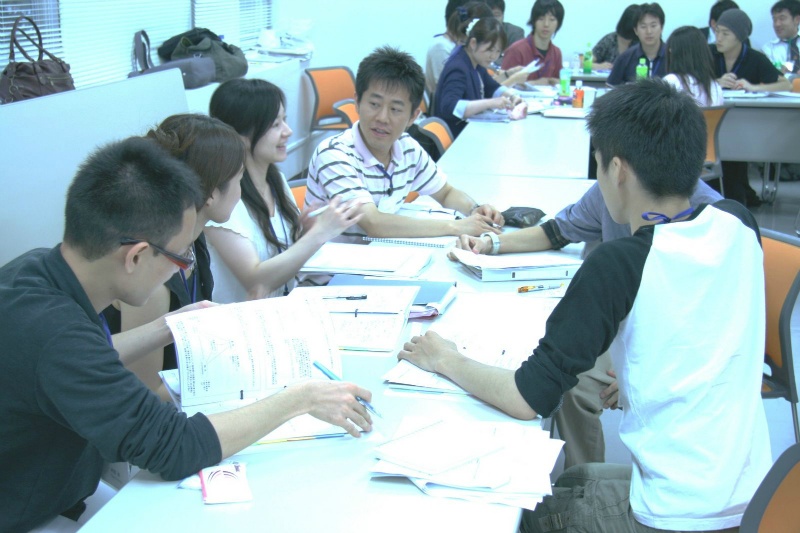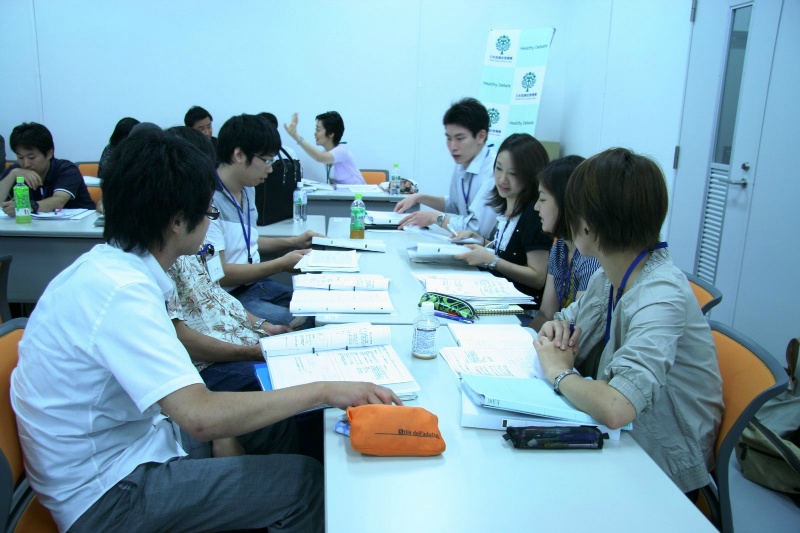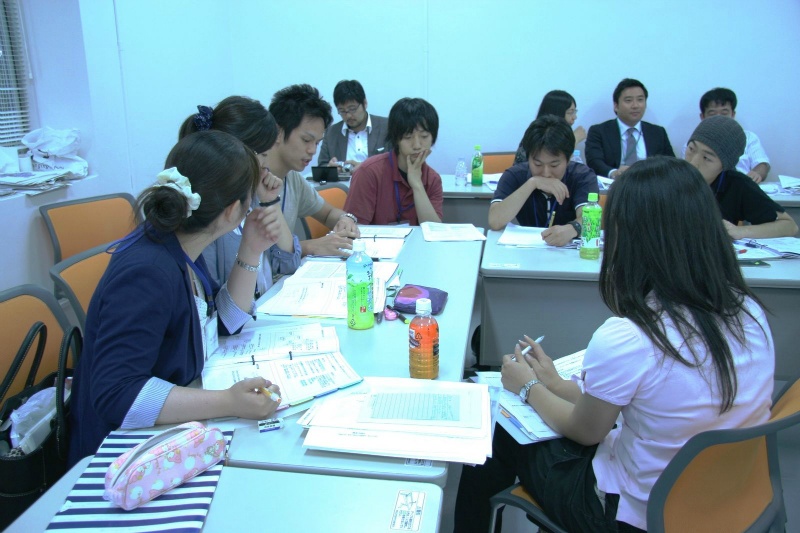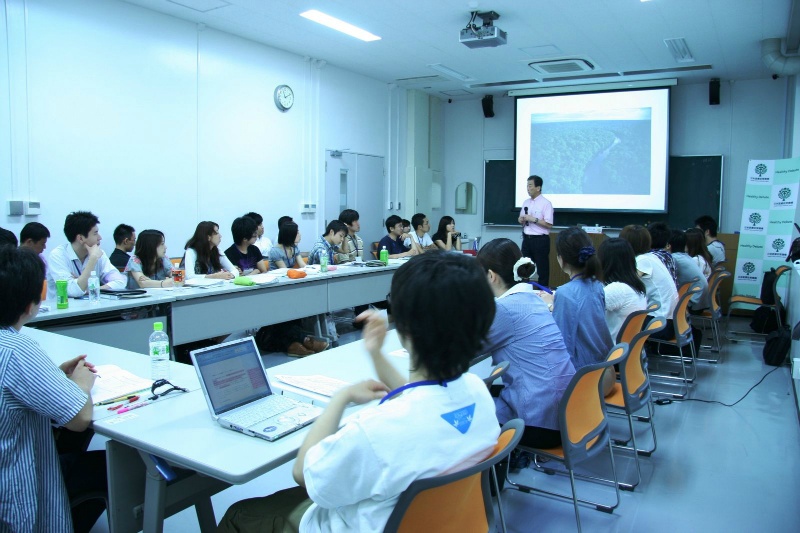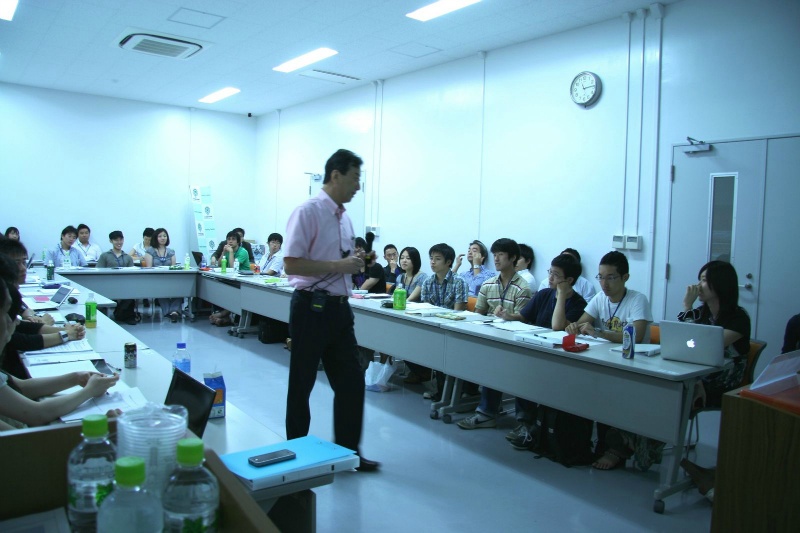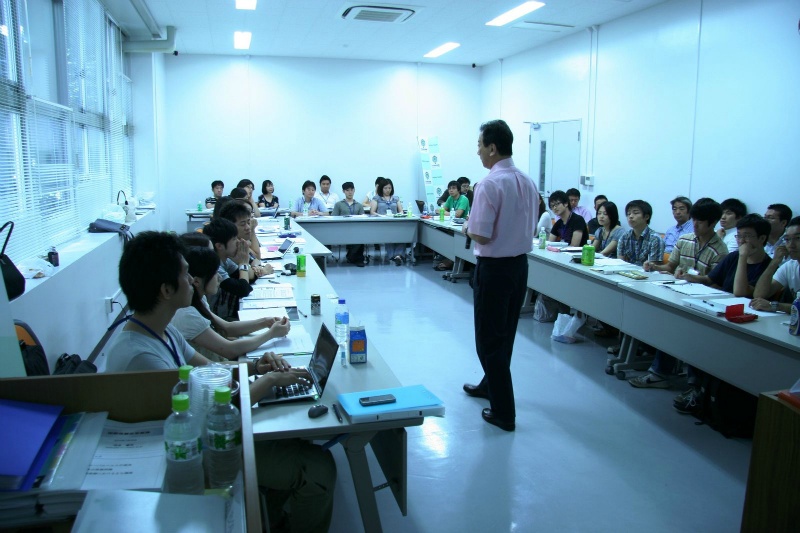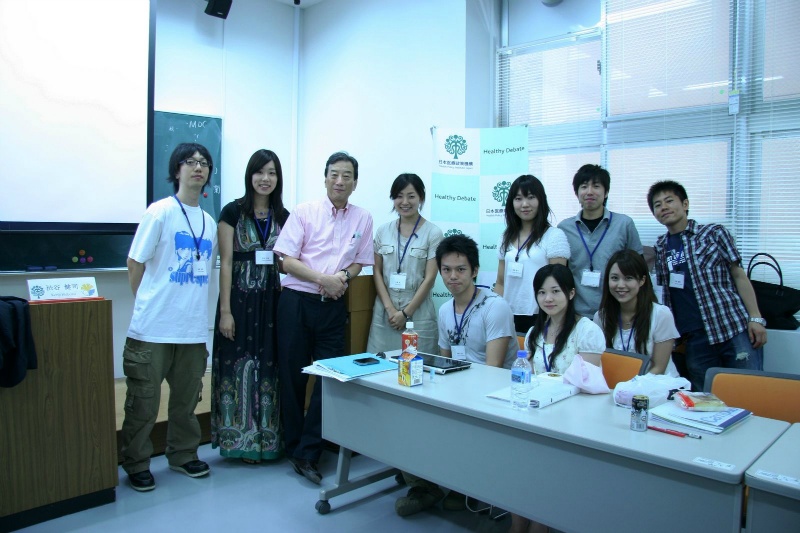As I have reported to you several times in this website, the very first project run by Japanese kicked off by the initiatives of Mr. Saisyo and other students of Waseda University (they are currently on the leave of absence of course) and Grameen Bank, Bangladesh.
The name of the project is “‘The Dragon Cherry Blossoms‘ of the poorest country in Asia” (in Japanese) e-education program.
As you see in the blog of Mr. Saisyo (in Japanese), the Asahi Shinbun newspaper published an article on this in Japan. A series of coverage is also scheduled to appear on ‘Soto Koto’ magazine. The first report (in Japanese) was already published. Do you see how hard they are working? I am very pleased. Please support them in any way you can.
They have taken the students of the village on a bus to see the Dhaka University campus ? a 7 hours travel. I think this sort of ideas and actions will never occur unless you actually live at the place and think locally. According to the e-mail and photos from Mr. Saisho (in Japanese);
“Yesterday, I took the village high school students to a study tour to Dhaka University. This idea came because I saw the students having hard time trying to imagine themselves ‘entering Dhaka University’. ‘We might as well take them to the place! ‘ that was the concept of this plan.”
“ ‘It was my lifetime experience!!!’ was their reaction. The tour was a huge success.”
Was Saisyo-kun’s report.
What kind of experience was this to the village children, parents, or villagers? Of course this will, I would say, eventually affect the way Dr. Yunus and the people at the Grameen Bank see Japanese young students and people.
This is a good example of the basic concept of Citizen Diplomacy. Universities, not to speak of companies, have responsibilities to support and encourage such youths. This sort of activities of private sector will be a good brand toward the future. Sucn activites of private sector are indeed ‘social enterprises’, the ‘strategic investments’. We don’t necessarily have to depend on governments. After all, how could we depend on grown up people who almost automatically respond by excuses saying ‘A good idea, but not possible to do because,,,’ , ‘we don’t have budgets….’, or rely to that never changing education policies? We should rather think and come up with ideas on how to support these activities by the youth. The last thing we need to do is to discourage the ambitions of the youths (Ref.1).
